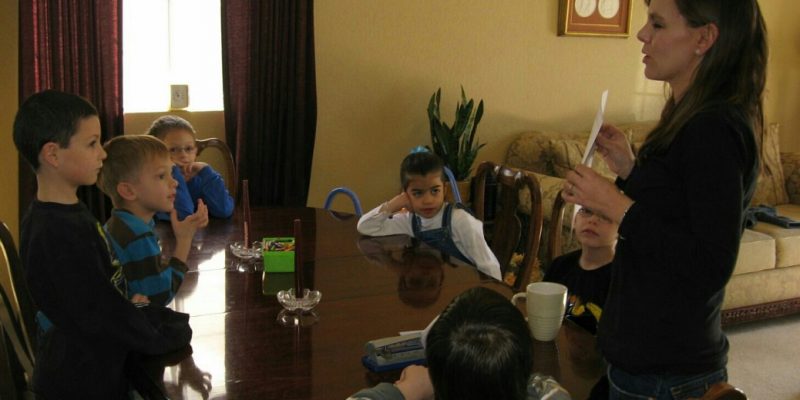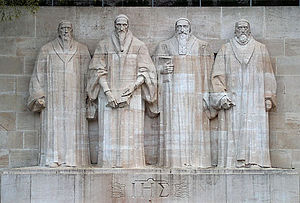When Theology Gals decided to take on the subject of Federal Vision and release episodes discussing the errors, we knew we would get push back. Some people urged us to “hear them out” and let them come on the podcast to explain their side. We will not be doing that because the Reformed churches have spoken, and the debate is already over.
Below are links to the various reports from the PCA, OPC and URC, along with the main points outlined in each. Following are more resources for further study.
If you are someone that has held to the errors in Federal Vision, I pray you’ll repent. Here’s A Form For Penitent Ex-Federal Visionaries
PCA
REPORT OF AD INTERIM STUDY COMMITTEE ON FEDERAL VISION, NEW PERSPECTIVE, AND AUBURN AVENUE
THEOLOGY
From The Heidelblog, here is The PCA’s Nine Declarations Against The Federal Vision:
- The view that rejects the bi-covenantal structure of Scripture as represented in the Westminster Standards (i.e., views which do not merely take issue with the terminology, but the essence of the first/second covenant framework) is contrary to those Standards.
- The view that an individual is “elect” by virtue of his membership in the visible church; and that this “election” includes justification, adoption and sanctification; but that this individual could lose his “election” if he forsakes the visible church, is contrary to the Westminster Standards.
- The view that Christ does not stand as a representative head whose perfect obedience and satisfaction is imputed to individuals who believe in him is contrary to the Westminster Standards.
- The view that strikes the language of “merit” from our theological vocabulary so that the claim is made that Christ’s merits are not imputed to his people is contrary to the Westminster Standards.
- The view that “union with Christ” renders imputation redundant because it subsumes all of Christ’s benefits (including justification) under this doctrinal heading is contrary to the Westminster Standards.
- The view that water baptism effects a “covenantal union” with Christ through which each baptized person receives the saving benefits of Christ’s mediation, including regeneration, justification, and sanctification, thus creating a parallel soteriological system to the decretal system of the Westminster Standards, is contrary to the Westminster Standards.
- The view that one can be “united to Christ” and not receive all the benefits of Christ’s mediation, including perseverance, in that effectual union is contrary to the Westminster Standards.
- The view that some can receive saving benefits of Christ’s mediation, such as regeneration and justification, and yet not persevere in those benefits is contrary to the Westminster Standards.
- The view that justification is in any way based on our works, or that the so-called “final verdict of justification” is based on anything other than the perfect obedience and satisfaction of Christ received through faith alone, is contrary to the Westminster Standards
OPC
Report on Justification – Orthodox Presbyterian Church
An article by Alan Strange on the OPC website on Understanding the “Federal Vision”, outlines the errors from the OPC’s report :
“Twenty errors that are held by one or more advocates of the Federal Vision are listed in the conclusion of the report of the OPC’s Committee to Study the Doctrine of Justification:
- Pitting Scripture and Confession against each other.
- Regarding the enterprise of systematic theology as inherently rationalistic.
- A mono-covenantalism that sees one covenant, originating in the intra-Trinitarian fellowship, into which man is invited, thus flattening the concept of covenant and denying the distinction between the covenant of works and the covenant of grace.
- Election as primarily corporate and eclipsed by covenant.
- Seeing covenant as only conditional.
- A denial of the covenant of works and of the fact that Adam was in a relationship with God that was legal as well as filial.
- A denial of a covenant of grace distinct from the covenant of works.
- A denial that the law given in Eden is the same as that more fully published at Mt. Sinai and that it requires perfect obedience.
- Viewing righteousness as relational, not moral.
- A failure to make clear the difference between our faith and Christ’s.
- A denial of the imputation of the active obedience of Christ in our justification.
- Defining justification exclusively as the forgiveness of sins.
- The reduction of justification to Gentile inclusion.
- Including works (by use of “faithfulness,” “obedience,” etc.) in the very definition of faith.
- Failing to affirm an infallible perseverance and the indefectibility of grace.
- Teaching baptismal regeneration.
- Denying the validity of the concept of the invisible church.
- An overly objectified sacramental efficacy that downplays the need for faith and that tends toward an ex opere operato [automatically effective] view of the sacraments.
- Teaching paedocommunion.
- Ecclesiology that eclipses and swallows up soteriology.”
URC
Report of the Synodical Study Committee on the Federal Vision and Justification
The URC’s Nine Points Against The Federal Vision
- Who deny or modify the teaching that “God created man good and after His own image, that is, in true righteousness and holiness,”” able to perform “the commandment of life” as the representative of mankind (HC 6, 9; BC 14);
- Who, in any way and for any reason, confuse the “commandment of life” given before the fall with the gospel announced after the fall (BC 14, 17, 18; HC 19, 21, 56, 60);
- Who confuse the ground and instrument of acceptance with God before the fall (obedience to the commandment of life) with the ground (Christ who kept the commandment of life) and instrument (faith in Christ) of acceptance with God after the fall;
- Who deny that Christ earned acceptance with God and that all His merits have been imputed to believers (BC 19, 20, 22, 26; HC 11-19, 21, 36-37, 60, 84; CD I.7, RE I.3, RE II.1);
- Who teach that a person can be historically, conditionally elect, regenerated, savingly united to Christ, justified, and adopted by virtue of participation in the outward administration of the covenant of grace but may lose these benefits through lack of covenantal faithfulness (CD, I, V);
- Who teach that all baptized persons are in the covenant of grace in precisely the same way such that there is no distinction between those who have only an outward relation to the covenant of grace by baptism and those who are united to Christ by grace alone through faith alone (HC 21, 60; BC 29);
- Who teach that Spirit-wrought sanctity, human works, or cooperation with grace is any part either of the ground of our righteousness before God or any part of faith, that is, the “instrument by which we embrace Christ, our righteousness” (BC 22-24; HC 21, 60, 86);
- Who define faith, in the act of justification, as being anything more than “leaning and resting on the sole obedience of Christ crucified” or “a certain knowledge” of and “a hearty trust” in Christ and His obedience and death for the elect (BC 23; HC 21);
- Who teach that there is a separate and final justification grounded partly upon righteousness or sanctity inherent in the Christian (HC 52; BC 37).
For Further Study:
For Those Just Tuning In: What Is The Federal Vision?
Forty Three Years Of Federal Vision Theology
With The Presbycast On The Federal Vision podcast
With The Regular Reformed Guys On The Federal Vision podcast
Justification By Faith Alone Is The Normative Reformed Doctrine
Heidelcast 55: Why We Can’t Move On (1)
Heidelcast 56: Why We Can’t Move On (2)
Heidelcast 57: Why We Can’t Move On (3)
Striking At The Vitals Of Religion: Understanding The Federal Vision links on Federal Vision
Resources on the Federal Vision Theology
Federal Vision with Dewey Roberts Part 1 | Episode 76
Historic Christianity and the Federal Vision by Dewey Roberts (currently offered at special price – $14 which includes shipping and handling)



